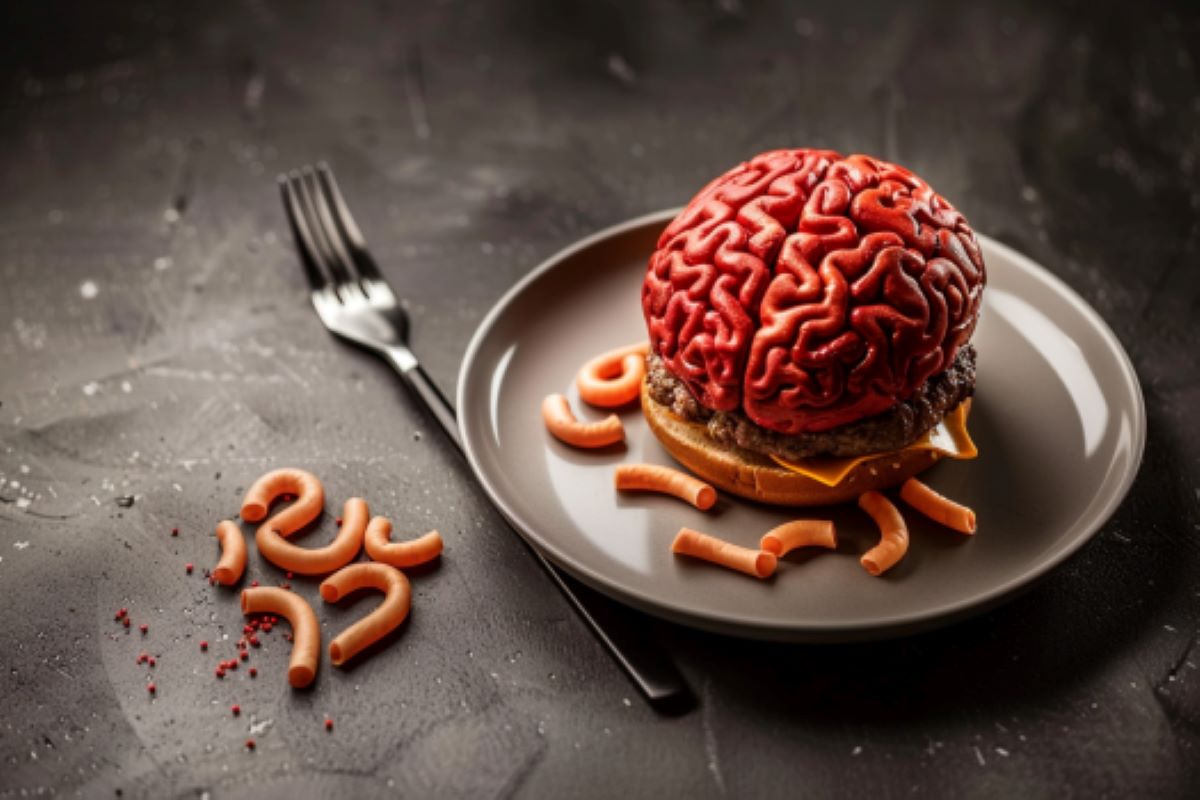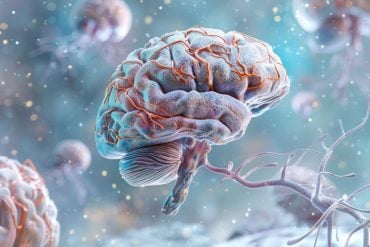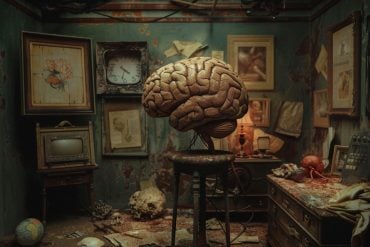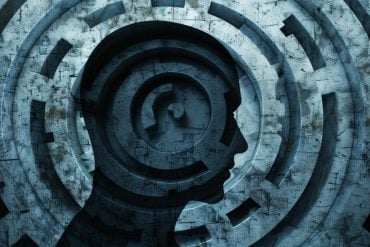Summary: Fruit flies use the neurotransmitter octopamine to decide whether food memories are stored long-term or short-term. This process, influenced by energy reserves, affects future eating behavior.
High glycogen levels result in stable food memories, prompting increased food intake even after fasting. The research suggests that similar mechanisms may influence overeating in humans.
Key Facts:
- Octopamine in fruit flies decides the storage of food-related memories based on energy reserves.
- High glycogen levels lead to long-lasting food memories and increased food intake.
- The study provides potential insights into overeating and obesity in humans.
Source: University of Cologne
In behavioral experiments using the fruit fly Drosophila melanogaster, a research team at the University of Cologne’s Institute of Zoology studied the control of food intake in the brain.
Similar to humans, molecules similar to insulin regulate food intake in fruit flies. Among other things, this is influenced by a neurotransmitter system that mediates decisions.
The system uses the neurotransmitter octopamine, a molecule related to noradrenaline. The neurotransmitter determines whether memories of carbohydrate intake are stored in long-term or short-term memory.

This decision is made depending on the level of internal energy reserves, which in turn has a decisive influence on eating behavior in the future.
The study, led by Professor Dr. Henrike Scholz, has been published in the journal eLife under the title “Octopamine integrates the status of internal energy supply into the formation of food-related memories.”
The researchers investigated how mild fasting and reduced glycogen levels in fat and muscle tissue affect the perception of carbohydrates in the fruit flies. Glycogen, the storage form of glucose, is stored in fatty tissue and is largely used as energy in the muscles.
The information about the energy reserves of these tissues is integrated into the decision-making system by the octopamine and influences the biomechanics of the brain.
Previous studies have shown that overeating can lead to increased glycogen levels in animals and humans. In the experiment, the fruit flies were genetically modified to have a higher glycogen level.
During fasting, the increased energy reserves result in the formation of a very stable memory that does not disappear when food is consumed again. This is also the case if the nutritional value of the next meal is actually sufficient to compensate for the deficits caused by fasting. The memory triggers an increased food intake.
If the glycogen level was very high, the intake of carbohydrates in the experiment only led to a low rewarding effect in the brain. This decreased effect fueled the desire to continue eating.
If the food intake was sufficient or there was enough energy in the animal, the decision-making system in turn suppressed the formation of such a longer-lasting memory regarding the food source.
This was independent of the carbohydrate content of the food, or if it was protein-enriched. In general, the glycogen level had no influence on how the fruit flies evaluated protein-enriched foods.
Memories of carbohydrates—once useful, now harmful
Depending on the energy level, the octopamine is responsible for what kind of memory is formed in response to food intake: food that normally offers sufficient nutritional value is no longer perceived as sufficiently rewarding. The result can be overeating—regardless of the nutritional value or type of food.
“In ancient times, when food was a limited or scarce resource, this mechanism may have served to build up energy reserves when food was available. In times of food surplus, the long-lasting memory of a carbohydrate source may support excessive food intake—and thus contribute to the development of obesity,” said senior author Henrike Scholz.
There are no studies that prove a similar mechanism in humans, but as the molecules involved are very similar in fruit flies and humans, the research team suggests that the mechanism works in a similar way.
The results could therefore explain why it is difficult to lose weight: If the memory of the rewarding effect of food outlasts the rewarding and satiating effect of actual food intake, this may lead to increased food intake.
Scholz concluded, “In the future, it could be important to find out how to erase this long-lasting memory so that losing weight becomes easier.”
About this neuroscience and food memory research news
Author: Eva Schissler
Source: University of Cologne
Contact: Eva Schissler – University of Cologne
Image: The image is credited to Neuroscience News
Original Research: Open access.
“Octopamine integrates the status of internal energy supply into the formation of food-related memories” by Henrike Scholz et al. eLife
Abstract
Octopamine integrates the status of internal energy supply into the formation of food-related memories
The brain regulates food intake in response to internal energy demands and food availability. However, can internal energy storage influence the type of memory that is formed?
We show that the duration of starvation determines whether Drosophila melanogaster forms appetitive short-term or longer-lasting intermediate memories.
The internal glycogen storage in the muscles and adipose tissue influences how intensely sucrose associated information is stored. Insulin-like signaling in octopaminergic reward neurons integrates internal energy storage into memory formation. Octopamine, in turn, suppresses the formation of long-term memory.
Octopamine is not required for short-term memory, because octopamine-deficient mutants can form appetitive short-term memory for sucrose and to other nutrients depending on the internal energy status.
The reduced positive reinforcing effect of sucrose at high internal glycogen levels combined with the increased stability of food-related memories due to prolonged periods of starvation could lead to increased food intake.







